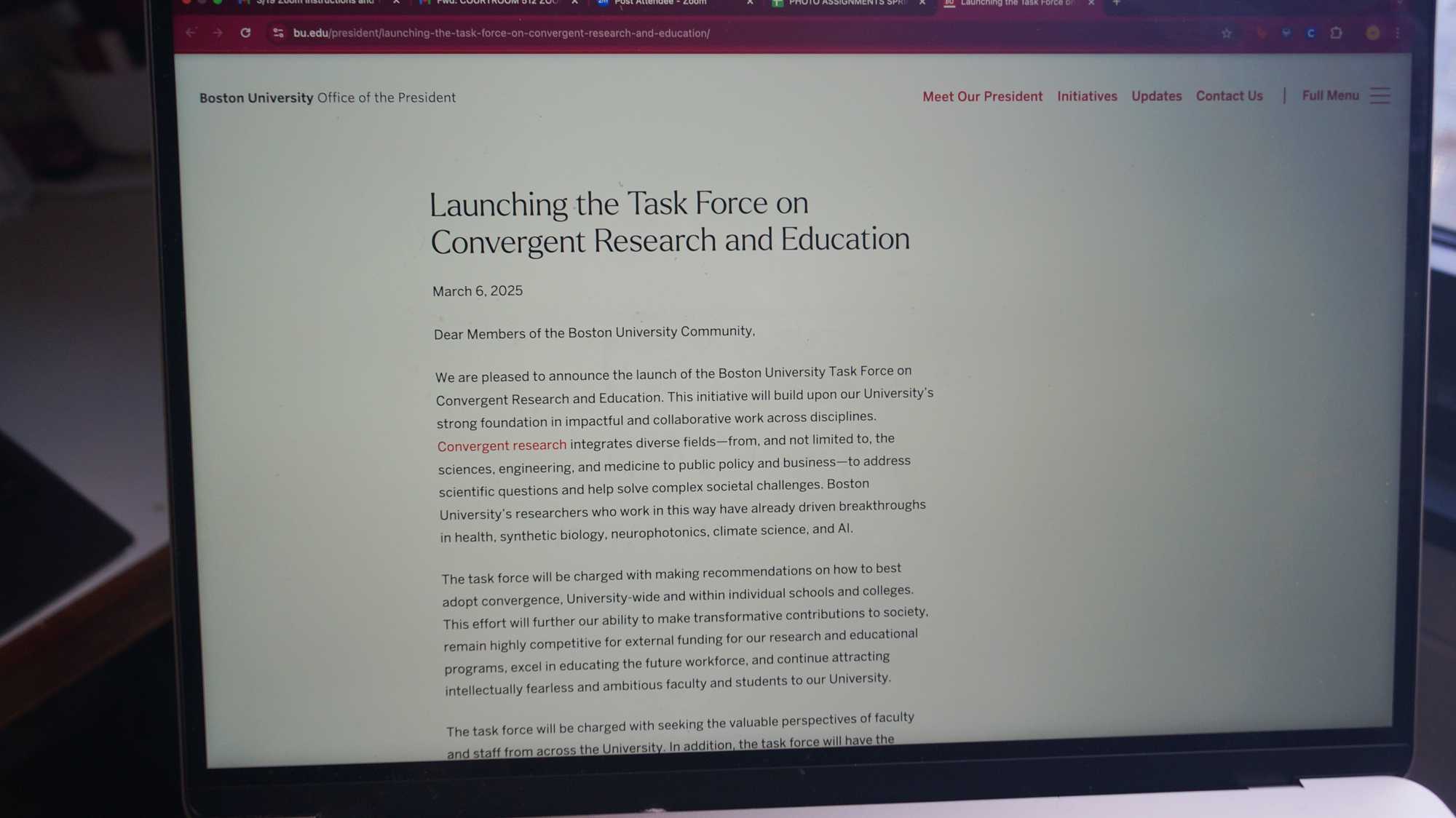Boston University President Melissa Gilliam announced the launch of the BU Task Force on Convergent Research and Education, which intends to integrate cross-disciplinary study into BU curriculum and research initiatives, in a letter to the University community March 6.

The task force, which began piloting ideas during its first meeting March 17, will integrate crossovers between fields of study to strengthen BU’s research capabilities.
“This effort will further our ability to make transformative contributions to society, remain highly competitive for external funding for our research and educational programs, excel in educating the future workforce, and continue attracting intellectually fearless and ambitious faculty and students to our University,” Gilliam wrote.
The inspiration for the force began in the College of Engineering where Kenneth Lutchen, former ENG dean and current co-chair of the task force, integrated the practice of investing in ideas spanning multiple departments.
“By investing in people and processes in those more cross-departmental themes, we were more likely to be successful at research and in terms of the kinds of funding we would get, the problems we could work on, and also in attracting really intellectually ambitious and fearless faculty and students to Boston University,” Lutchen said.
The task force will recommend approaches for BU to implement convergent branches of study, with the curriculum and faculty hiring process subject to change.
The task force will meet with the University July 1st to share its proposal, and eventually, a full report will be sent to the BU community for thoughts and feedback. If the community and BU staff approve, the recommendations will be implemented immediately, Lutchen said.
“Between now and July 1, we have a lot of ground to cover, and some very big issues to discuss while we prepare our recommendations for President Gilliam and Provost Waters,” said Darrell Kotton, co-chair of the task force.
Lutchen said he hopes faculty will be inspired by the initiative to rethink the opportunities they present to students.
“What it might do is stimulate faculty to think about new kinds of courses, new kinds of collaborations and new kinds of experiences for students,” Lutchen said.
Lutchen said all students will benefit from interdisciplinary collaborations, whether or not they are involved with research.
Despite recent executive orders cutting research grant funding, leaving the future of university research unclear, Kotton said the task force has no plans of stopping.
“There was a decision to proceed despite those cuts because the strategy for maintaining a leading institution that does outstanding research is going to be long-lived for many years,” Kotton said. “That’s not going away, no matter how many changes in the research funding or infrastructure there [are] in the country.”
Katie Banish, a senior in the College of Engineering, agrees on the need for more integrated research.
“I think one of the pitfalls of the STEM fields, which are more commonly associated with research, is that there is not enough interdisciplinary work done,” Banish said. “It’s not done with as much care and intention as I think it should be.”
Kotton said he anticipates the task force will take BU “to the next level” in research.
“Doing more deliberate and more supportive convergent research at this university is a really exciting horizon that should position Boston University to be a worldwide leader in research,” Kotton said.

























































































































